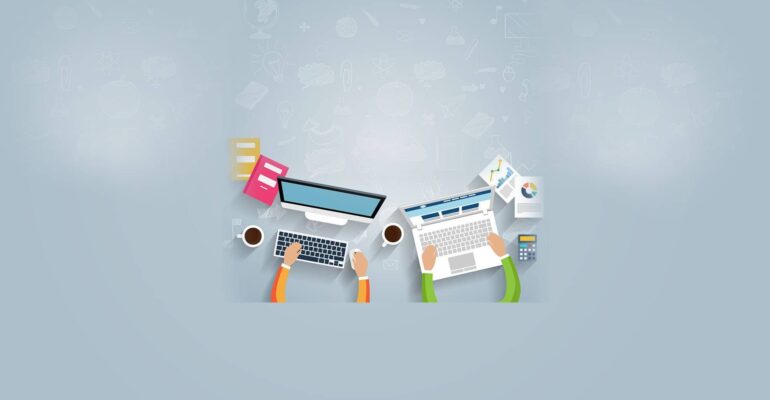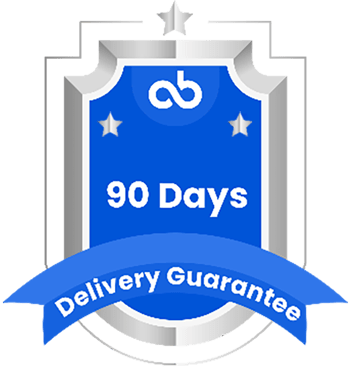Boost Your Business Through ERP Solutions
Introduction:
Each organization needs mechanized procedures for the proficient running of their organizations; ERP is the answer for their requirements.
ERP or Undertaking asset arranging is a framework through which robotization of business forms for a venture is conceivable. One of the greatest focal points of utilizing ERP framework is that it can be incorporated into all elements of your professional records, HR or Back and that to on a solitary stage that empowers business administration to settle on educated choices. ERP is planned in a way that gives an edge to business associations. Toward the day’s end, everybody needs to be in front of their rivals and ERP application can adequately meet the necessities of any business needs.
Why utilize an ERP framework for your business?
ERP arrangements have turned out to be successful to the necessities of each business association. Despite the size or nature of the business, ERP can be executed all over. Since the framework is based on one bound together stage; it can without much of a stretch synchronize with alternate business divisions of an association.
Administration can undoubtedly produce reports as it takes after a mechanized format framework that empowers distinctive offices to get to data with no issues. Another extraordinary thing about utilizing ERP program is that it is anything but difficult to utilize, precise and financially savvy which helps in keeping up operational expenses of any business.
Executing ERP in your business
There is no denying the way that executing ERP in your business has turned out to be viable. In any case, executing ERP is by and large an alternate situation. There are different elements to take a gander at. Time and cost are the most imperative elements to consider while intending to actualize ERP in your association. On the off chance that the venture size and degree is colossal, at that point it might even take a very long time for ERP usage.
To the extent costs are concerned, a great deal of it relies upon which merchant you pick. Picking the correct merchant can significantly affect costs and also usage time. Henceforth, settling on right choices is significant while picking your seller’s ERP packages, highlights, and different advantages.
Actualizing ERP in your business requires a gigantic measure of arranging and research. An appropriate report on business necessities should be done before beginning the usage procedure. Picking the privilege ERP answer for your business needs an appropriate assessment of framework.
Picking the privilege ERP seller for your business
Taking a gander at the request, there are many organizations that are giving ERP answers for your business. Thus, it is basic that before settling on any choice, you ought to measure your choices and have an open exchange with each of the sellers to comprehend your alternatives.
It is constantly fitting to check the past undertaking and take a few references to get the correct picture. Check the stages they use to assemble ERP modules since you would need to remain with a similar stage for a long haul. It isn’t conceivable to change the stages at a drop of a cap. In this manner, you have to settle on savvy choice to dispense with any future issues.
Advantages of ERP Software:
Increase efficiency
Business processes like accounting, sales, marketing, production and inventory are integrated in one ERP platform. It’s easier to collect and access data across the organization, streamlining cross-departmental workflows.
Likewise, ERP automates day-to-day tasks like manually entering data or generating reports. Repetitive processes are eliminated, freeing teams to focus on their core deliverables. For instance, marketing can run a daily web traffic report without bugging tech; or, accounting can instantly access the week’s sales stats without chasing the sales director.
ERP also provides managers and key stakeholders with quick look-ups. Dashboards allow decision-makers to glance at key performance indicators across the organization. If they want to investigate more, managers can drill down to details in a few clicks.
Promote collaboration
ERP breaks down walls between departments. Data silos are integrated and a process superhighway links local workstation together. This setup allows teams that used to operate in a vacuum to easily collaborate with other teams inside the ERP platform.
Make accurate forecasts
The only worse thing about the lack of forecast is a wrong one. Forecasts shape strategies; thus, its crucial organizations get the real picture. Using a centralized database, ERP lends to a company’s disparate business solutions a standardized process, ultimately, enhancing data integrity.
ERP reporting tools use advanced filters and analytics to sift data for inconsistencies. Features of ERP software like duplication also ensures data is updated and duplicate-free. With data integrity intact, managers can generate reports with realistic forecasts. Similarly, estimates are within a sensible range of outcomes.
Moreover, advanced ERP solutions with business intelligence tools use machine learning and predictive algorithm that allow users to dig deep into big data. Companies with complex data sources can leverage ERP for hidden insights and gain a competitive edge.
Lower operational costs
A company can also leverage ERP to cut down costs. When processes are streamlined and key metrics are closely monitored, disruptions, delays and breakdowns are anticipated or its impact better managed. Manufacturing and distribution are especially vulnerable to disruption. But with ERP allowing production, engineering, customer service and other business units to work closely together using real-time data, resolving sudden problems is faster. Operating costs are kept within budget.
Increase data security
ERP solutions have firewalls and restriction controls to guard against data breach. Having a single data warehouse means access points are tightly monitored and security is concentrated. Likewise, user permission rules give admin the flexibility to lock in sensitive data without limiting user access to other information.
Admin can also quickly de-active access of terminated employees, while grant permission to new ones. ERP solutions also display user activities, so admin can easily spot unauthorized actions or suspicious activity patterns in the system.
Comply with regulations
Many ERP solutions feature built-in regulatory process standards and compliance reporting to help businesses meet myriad business requirements. ERP solutions subscribe to reporting protocols for aspects like financial accounting, product regulations and data security.
ERP can be fully integrated or customized to specific processes.
A typical ERP system covers key business processes and consists of the following modules:
- Financial management
- Customer Relationship Management (CRM)
- Sales & Marketing
- Human Resource Management (HRM)
- Manufacturing
- Supply Chain Management (SCM)
- Inventory
- Purchasing
The more advanced ERP today also include business intelligence, asset management and e-commerce. Also, ERP can be vertical with industry-specific features for, among others, retail, healthcare, government and nonprofit. Let’s break down the basic modules and how they serve your needs.
What are the factors to consider when choosing ERP software?
Suppose you already weighed the cost-benefit ratio of getting an ERP and you’re convinced it’ll drive overall profitability. You now need to consider these key factors to ensure you optimize its ROI.
Upgrade vs. replacement.
Evaluate first if you need to get a new ERP system or just an upgrade. Many ERP solutions today are modularized; you can simply integrate a module, for instance payroll, with your current applications. This way you minimize disruption and costs.
But if your ERP system is ten years or older, it may be wise to replace it. You can leverage today’s ERP solutions for mobility, integration, scalability and deployment options. Similarly, machine learning, predictive analysis and advanced reporting are pushing ERP to the next level.
Aside from ensuring the ERP processes match your key business workflows, look closely at your departments. They may have different priorities and culture, which may even be contradictory. For example, Marketing spends, while Accounting saves or Production lives by daily output, while Sales lives by monthly quota. All these lead to myriad workflows that won’t fit into a one-size solution. Look for an ERP solution with customization tools, localized dashboards and configurable workflows, among others, that allow departments to define their goals and set the ERP based on their parameters.
Reporting and dashboards.
Go beyond spreadsheet and PDF exports. ERP solutions today feature advanced reporting that can generate compliant financial statements based on your region. The latest ERP reporting tools also allow in-system query and smart filters coupled with real-time data. Likewise, look for agile and ad hoc reporting to quickly adjust to evolving business needs and disruptions. Dashboards, on the other hand, should let you mash up quantitative vs. qualitative data at user, role and department levels. Look for the standard dashboard function of displaying KPIs with drill-down links.
ERP should work seamlessly with your existing business applications. There are a number of integration points you need to consider from top to bottom. These include system-to-system (example, ERP to your existing CRM or HRMS), module-to-system (example, ERP payroll to your existing HRMS) and file transfer capabilities (example, exporting/importing PDF, JPG, DOC, CSV files). An ERP with flexible integration can work with existing infrastructure, expand its functionalities or, in fact, replace it while ensuring smooth records and files migration.
Training and setup.
On-premise ERP solutions need to be installed by someone with technical know how. If you lack a tech team, make sure you understand your service level agreement or SLA. Installation is often charged separately from license, but some vendors offer all-in bundled plans. For SaaS ERP, setup is as easy as activating an account to access the vendor’s server.
Likewise, ERP is more complex than most business solutions, so it requires user training. Does your vendor provide this service? Whether bundled in or exclusive to the plan, the kind of training you’ll receive should suffice for average users to adopt the system.
Absolin.co is one of the leading ERP software services providers and brings to the table more competitive advantages like:
- Scalability – add more features as your business grows without installing a new system
- Mobility – access ERP data and tools anywhere, anytime via internet
- Flexibility – integrate existing apps to ERP or export ERP data to business apps
- Low capital outlay – minimum budget only for hardware, software, setup
- Maintenance-free – vendor takes care of patches, updates, troubleshooting, downtime.
Contact them at info@absolinsoft.com for a Demo or a free trails.
Final Thought:
Whether you’re expanding your customer base; entering new markets; rolling out new processes, departments or products; or are otherwise growing your business, adding new functionality to an ERP platform is easy with the right software vendor. Just make sure that when you’re speaking to vendors, they understand your intentions for growth in the future.
The potential for totally streamlined business functions and boosts in productivity over the long-term makes the benefits of implementing ERP systems a worthwhile investment of time and resources.
“Assess the requirements, Explore the opportunities and Implement the changes and Succeed – Sky is the limit”.






